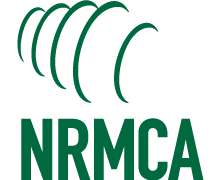
| Archive | nrmca.org | E-Store | Conferences & Events | Certifications | InFocus | Membership Directory |
Industry Executives Criticize Proposed EPA Water Regulations Before House Committee Last week, the House Small Business Committee held a hearing on EPA’s proposed Waters of the U.S. Rulemaking to discuss how small businesses would be affected. The Washington Post’s headline captured the hearing’s theme perfectly: "Small business owners: New water rules will drown my company in regulations." Both members of the committee and witnesses voiced their concerns that the EPA and Corps of Engineers did not adequately assess the impact of their proposed rule on small businesses, as required by the Regulatory Flexibility Act. While the EPA and Corps have certified that their proposed rule would not have a significant economic impact on small entities, they did not provide any justification for this conclusion.
Chairman Sam Graves (R- MO-06) said, "This rule will impose significant additional costs and burdens on small businesses to comply with Clean Water Act requirements for thousands of small streams, ditches, ponds, and other isolated waters, some of which may have little or no connection to traditionally navigable waters that the Act was designed to protect. This is a power grab that cannot be justified." Ranking Member Nydia Velázquez, who emphasized the economic benefits to having safe and clean water, noted that some small businesses, especially those in construction and agriculture, would be subject to greater regulatory costs as a result of this rule.
Witnesses on behalf of the National Stone Sand and Gravel Association (NSSGA) and the National Association of Home Builders both voiced significant concerns about running their businesses under the proposed rule. Alan Parks, on behalf of NSSGA, stated that the proposed rule change will likely make the initial undertaking of site permitting significantly more complex and costly. One NSSGA member estimated that additional mitigation under the rule would be more than $100,000 under this rule, which is far more than EPA has estimated. More water features requiring permits are likely to increase the time and costs of permits, which will make starting new construction projects more difficult and more risky for builders.
NRMCA is working on comments on behalf of the industry.
|
|
|







